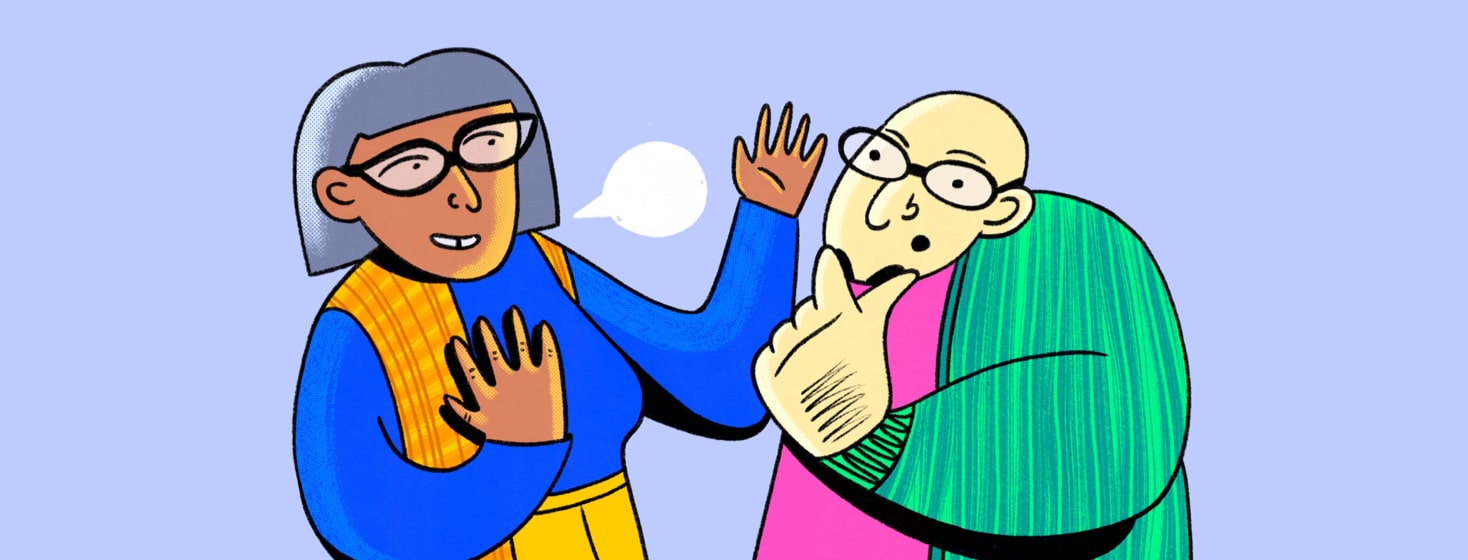My Arsenal of Facts for Fighting Stigma
Living with schizophrenia can often feel like navigating through a world filled with misconceptions and stigma. If your experience is anything like mine, you frequently find yourself at odds with relatives, neighbors, and acquaintances who believe all the negative stereotypes associated with people with schizophrenia.
I've found the best way to handle conversations with people who believe we’re violent, dangerous burdens to society is to simply state the facts that disprove their assumptions. Below is my arsenal of truths to win any dispute with someone uninformed about schizophrenia.
Schizophrenia stigmas: fight them with facts!
1. People with schizophrenia are 14 times more likely to be the victims of violence than to be arrested as the perpetrator.1
A neighbor who once saw me in psychosis acted angry and suspicious toward me when I ran into him after my episode. He repeatedly asked me, “Are you good?” with narrowed eyes and a furrowed brow.
After I reassured him multiple times I was fine, he told me, "Well, we were just concerned. Not scared – just concerned."
I followed up with, "Yep, those stereotypes sure affect our lives." Then I employed this statistic, and he ended up apologizing to me and shrinking away. This statistic is just the thing to help others understand people with schizophrenia as the vulnerable, marginalized population we are.
2. People with schizophrenia are 16 times more likely to die at the hands of police officers than other civilians stopped by law enforcement.2
It's all too common to hear politicians such as Canada's Doug Ford and the United States' Donald Trump call for those with schizophrenia to be locked up and, as Ford put it, "throw away the key." That's why this statistic is so important. Because it shows that the criminal justice system is not the solution for serious mental illness.
The next time you’re confronted with someone who thinks all people with schizophrenia should be behind bars, tell them this statistic. You just might find it gives them more compassion for people with schizophrenia, even during crises that involve law enforcement.
3. A third of people diagnosed with schizophrenia will get over it like a respiratory disease, a third will recover but will have to manage it closely like a severe case of diabetes, and only a third will have the poor outcomes people might expect.3
I recently complained to a relative about an eye doctor who, upon finding out about my schizoaffective diagnosis, told me with a pitying look, "Well, at least your eyes are healthy." My relative responded that I needed to cut the doctor some slack because my recovery is a statistical anomaly. I responded with this statistic, which allowed me to educate my relative that people with schizophrenia aren't lost causes and can and do recover.
This or That
Do you experience judgment from others about your mental health?
Challenging misinformation about schizophrenia
Armed with these facts, individuals living with schizophrenia can challenge stigma and misinformation, advocating for greater understanding, empathy, and support. By sharing these truths with others, we strive to create a world where individuals with mental illness are treated with dignity, compassion, and respect.
Together, we can dismantle stigma and foster a society that embraces the full spectrum of human experiences, including those living with schizophrenia.
